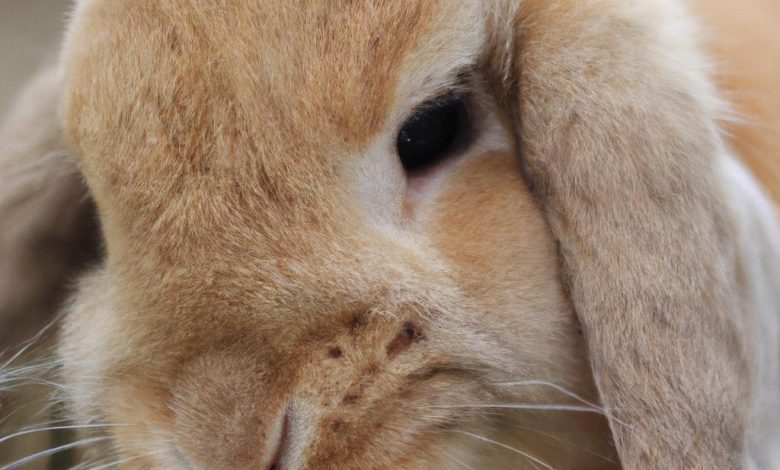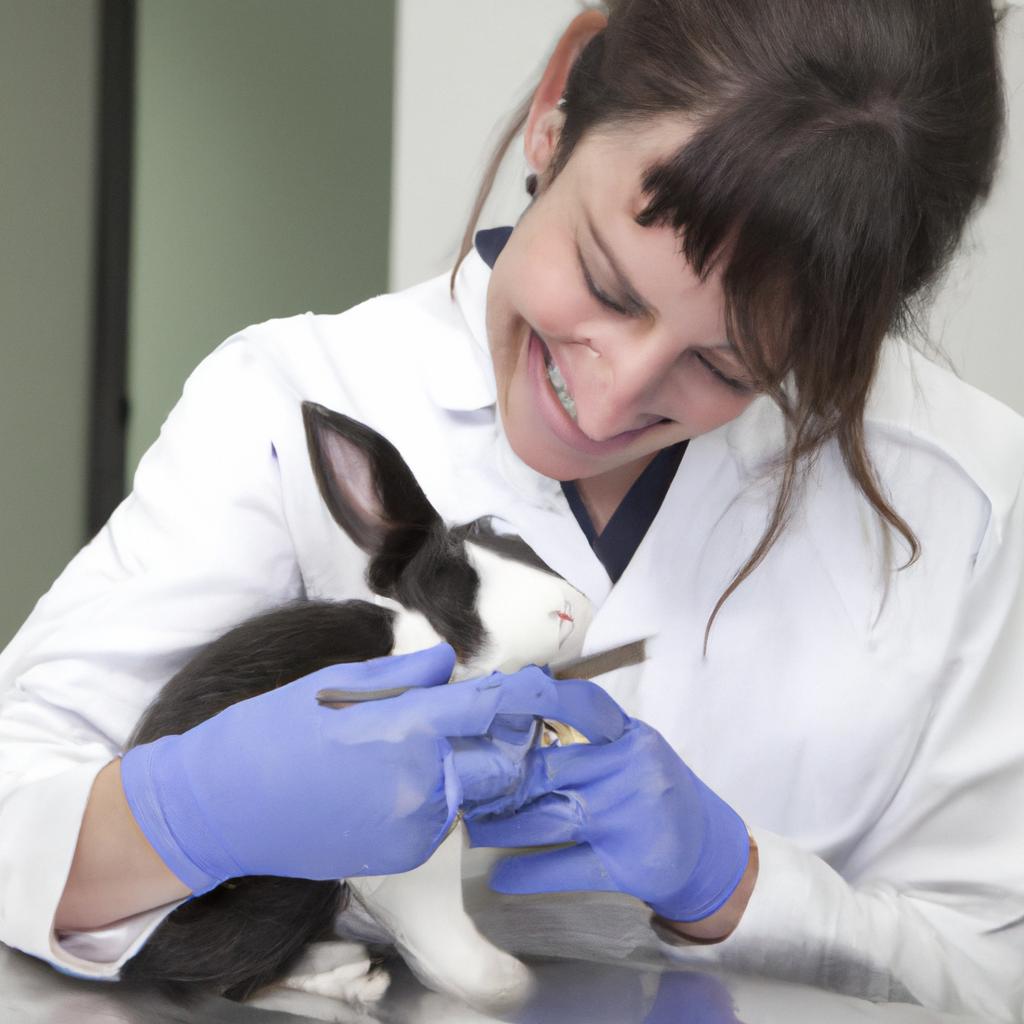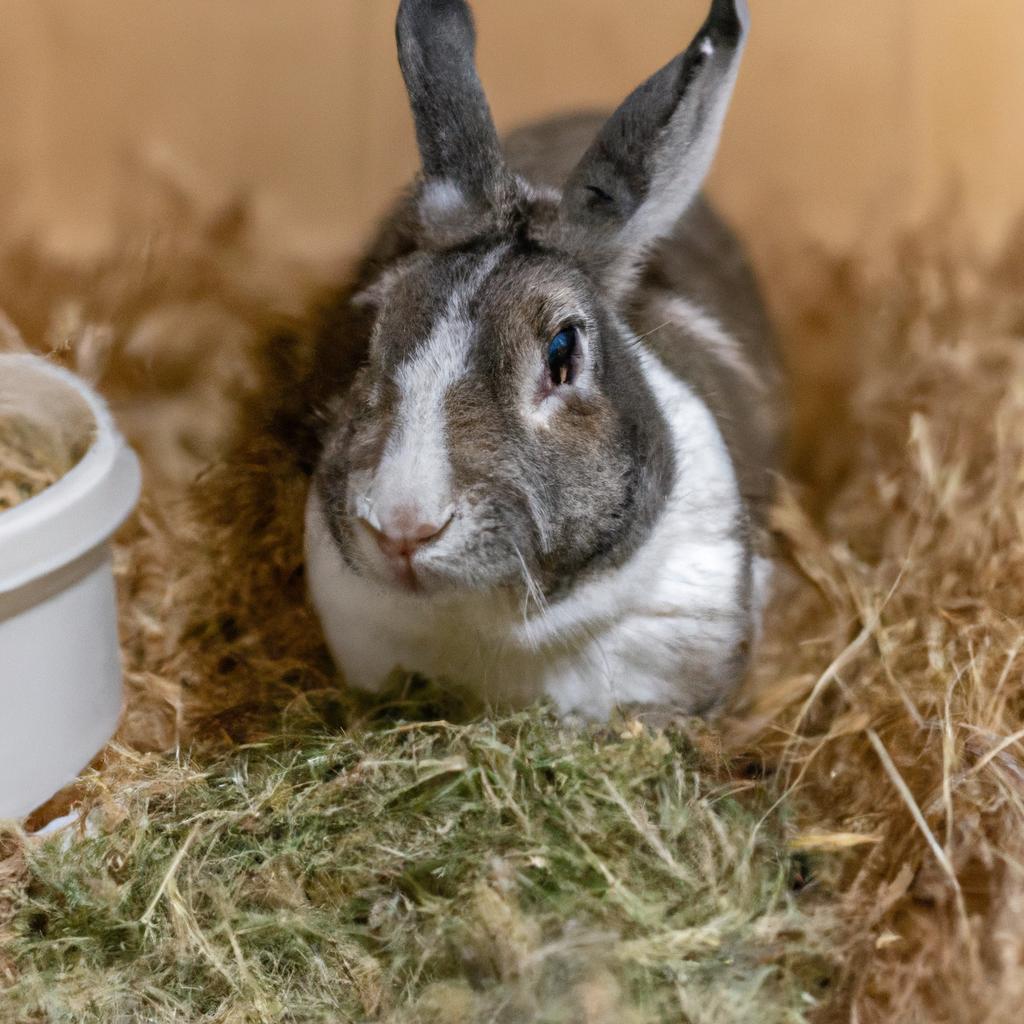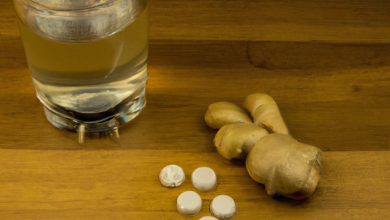Can Rabbits Eat Ginger? A Comprehensive Guide to Feeding Your Bunny

As a responsible pet owner, you want to ensure that your furry friend gets the best nutrition possible. But, with so many conflicting opinions out there, it can be tough to know what foods are safe and healthy for your rabbit. One food that has sparked a lot of debate is ginger. Can rabbits eat ginger? In this comprehensive guide, gingerfacts.com will explore the nutritional value of ginger, the potential risks and benefits of feeding it to your bunny, and alternative herbs and spices that are safe for rabbits to eat.
First and foremost, providing a balanced diet is crucial for the health and well-being of your rabbit. Rabbits are herbivores, which means they thrive on a diet of hay, fresh vegetables, and a small amount of pellets. While it’s tempting to share our human foods with our pets, it’s essential to ensure that what we offer is safe and nutritionally beneficial for them. So, let’s dive into the world of ginger and see if it’s something your bunny can enjoy.
Nutritional Value of Ginger

Ginger is a popular spice that is used in many cuisines worldwide. It’s known for its distinct flavor and aroma, but did you know that ginger also offers several health benefits? Ginger is packed with several essential nutrients, including:
Nutrients found in ginger
- Vitamin B6
- Magnesium
- Potassium
- Copper
- Manganese
- Iron
- Zinc
These nutrients play a crucial role in maintaining good health and preventing chronic diseases such as heart disease and diabetes. Ginger is also rich in antioxidants, which help protect the body from free radical damage and reduce inflammation.
Benefits of ginger for human health
Ginger has been used in traditional medicine for centuries due to its many health benefits. Some of the potential benefits of consuming ginger include:
- Reducing nausea and vomiting
- Alleviating menstrual cramps
- Lowering blood sugar levels
- Improving digestion
- Reducing inflammation and pain
- Boosting the immune system
Can rabbits benefit from the same nutrients?
While ginger offers several health benefits for humans, it’s unclear if rabbits can benefit from the same nutrients. Rabbits have different nutritional requirements than humans, and their digestive systems are not designed to process the same foods. Therefore, it’s essential to ensure that any food we offer our bunnies is safe and nutritionally appropriate for their unique needs. In the next section, we’ll explore whether or not rabbits can eat ginger safely.
Can Rabbits Eat Ginger?

Is Ginger Safe for Rabbits to Consume?
The answer to this question is not a straightforward yes or no. Some rabbits may enjoy ginger and show no adverse effects, while others may experience health issues. Ginger is not toxic to rabbits, but it may cause digestive problems, especially if consumed in large quantities. Additionally, ginger can be difficult for rabbits to digest, leading to diarrhea or other gastrointestinal issues.
Possible Risks and Side Effects of Feeding Ginger to Rabbits
Feeding your rabbit ginger may cause digestive problems, as discussed above. Additionally, ginger may interfere with the absorption of certain vitamins and minerals, leading to nutrient deficiencies. Ginger also contains a compound called oxalate, which may contribute to the formation of kidney stones in some animals.
Recommended Serving Size for Rabbits
If you decide to give your rabbit ginger, it’s important to do so in moderation. The recommended serving size for rabbits is no more than a tiny piece of ginger, approximately the size of your pinky nail. It’s best to introduce ginger slowly into your rabbit’s diet and monitor them closely for any signs of digestive problems or other adverse effects.
In summary, while ginger is not toxic to rabbits, it’s not the best food choice for them either. If you want to offer your bunny a variety of flavors and nutrients, there are plenty of other herbs and spices that are safe and healthy for rabbits to eat. In the next section, we’ll explore some of these alternatives in more detail.
Alternative Herbs and Spices for Rabbits

Rabbits love variety in their diet, and herbs and spices are a great way to add some flavor and nutrition to their meals. Here are some herbs and spices that are safe for rabbits to eat:
Safe Herbs for Rabbits
- Basil
- Chamomile
- Cilantro
- Dill
- Mint
- Oregano
- Parsley
- Rosemary
- Sage
- Thyme
Safe Spices for Rabbits
- Cinnamon
- Coriander
- Fennel
- Paprika
- Turmeric
While ginger is not toxic to rabbits, it’s essential to remember that moderation is key. Ginger has a distinct flavor that not all rabbits may enjoy, so it’s essential to introduce it gradually and in small amounts. Additionally, ginger has some unique properties that set it apart from other herbs and spices. For example, ginger is known for its anti-inflammatory and digestive benefits. However, some rabbits may be more sensitive to ginger and may experience upset stomachs or diarrhea if they consume too much.
When incorporating herbs and spices into your rabbit’s diet, it’s important to remember that they should be used as a supplement to their regular diet of hay and vegetables. Avoid giving your rabbit too many treats, as this can lead to obesity and other health problems. Additionally, make sure to thoroughly wash all herbs and vegetables before giving them to your rabbit to remove any pesticides or dirt. By providing a varied and nutritious diet, you can help your bunny lead a happy and healthy life.
Best Foods for Rabbits
Overview of a Rabbit’s Dietary Needs
Before we dive into the specific foods that are safe and recommended for rabbits, let’s take a closer look at what a rabbit’s diet should consist of. Rabbits require a diet that is high in fiber, low in fat, and includes a variety of fresh vegetables and hay. The majority of their diet should consist of hay, which helps keep their digestive system healthy and prevents dental problems. Fresh vegetables should make up a smaller portion of their diet, as they provide essential vitamins and minerals.
List of Foods that are Safe and Recommended for Rabbits
Here are some of the best foods to include in your rabbit’s diet:
- Hay: Timothy hay, orchard grass hay, and oat hay are all excellent choices for rabbits. They provide the fiber necessary for a healthy digestive system and promote proper dental health.
- Fresh Vegetables: Some of the best vegetables to feed your rabbit include leafy greens such as kale, spinach, and romaine lettuce, as well as carrots, celery, and bell peppers.
- Pellets: High-quality pellets are an excellent source of nutrients for rabbits. Look for pellets that are high in fiber and low in fat and sugar.
- Water: Clean, fresh water should be available to your rabbit at all times. Make sure to provide a water bottle or bowl that is easy for your bunny to access.
Importance of Variety in a Rabbit’s Diet
While these foods make up the bulk of a rabbit’s diet, it’s crucial to provide variety to keep your bunny interested and ensure that they get all the necessary nutrients. Introduce new vegetables gradually, and always monitor your rabbit’s reaction to new foods. As with any changes to your rabbit’s diet, it’s essential to consult with your veterinarian to ensure that you’re providing a balanced and healthy diet for your furry friend.
Conclusion
In conclusion, can rabbits eat ginger? While ginger can offer some nutritional benefits, it’s not recommended to feed it to your bunny regularly. Rabbits have sensitive digestive systems, and introducing new foods can cause digestive upset or even toxicity. It’s essential to consult with your veterinarian before making any dietary changes for your rabbit.
If you’re looking to add some variety to your bunny’s diet, there are plenty of safe herbs and spices to choose from. Parsley, cilantro, basil, and dill are great options that can provide both flavor and nutrition. Remember to introduce new foods gradually and in small portions to avoid upsetting your rabbit’s stomach.
At gingerfacts.com, we’re committed to providing accurate and trustworthy information about ginger and other foods. We hope this guide has been helpful in answering your questions about feeding ginger to rabbits. Remember to prioritize your bunny’s health and wellbeing by offering a balanced and varied diet.
Conclusion: So above is the Can Rabbits Eat Ginger? A Comprehensive Guide to Feeding Your Bunny article. Hopefully with this article you can help you in life, always follow and read our good articles on the website: gingerfacts.com



